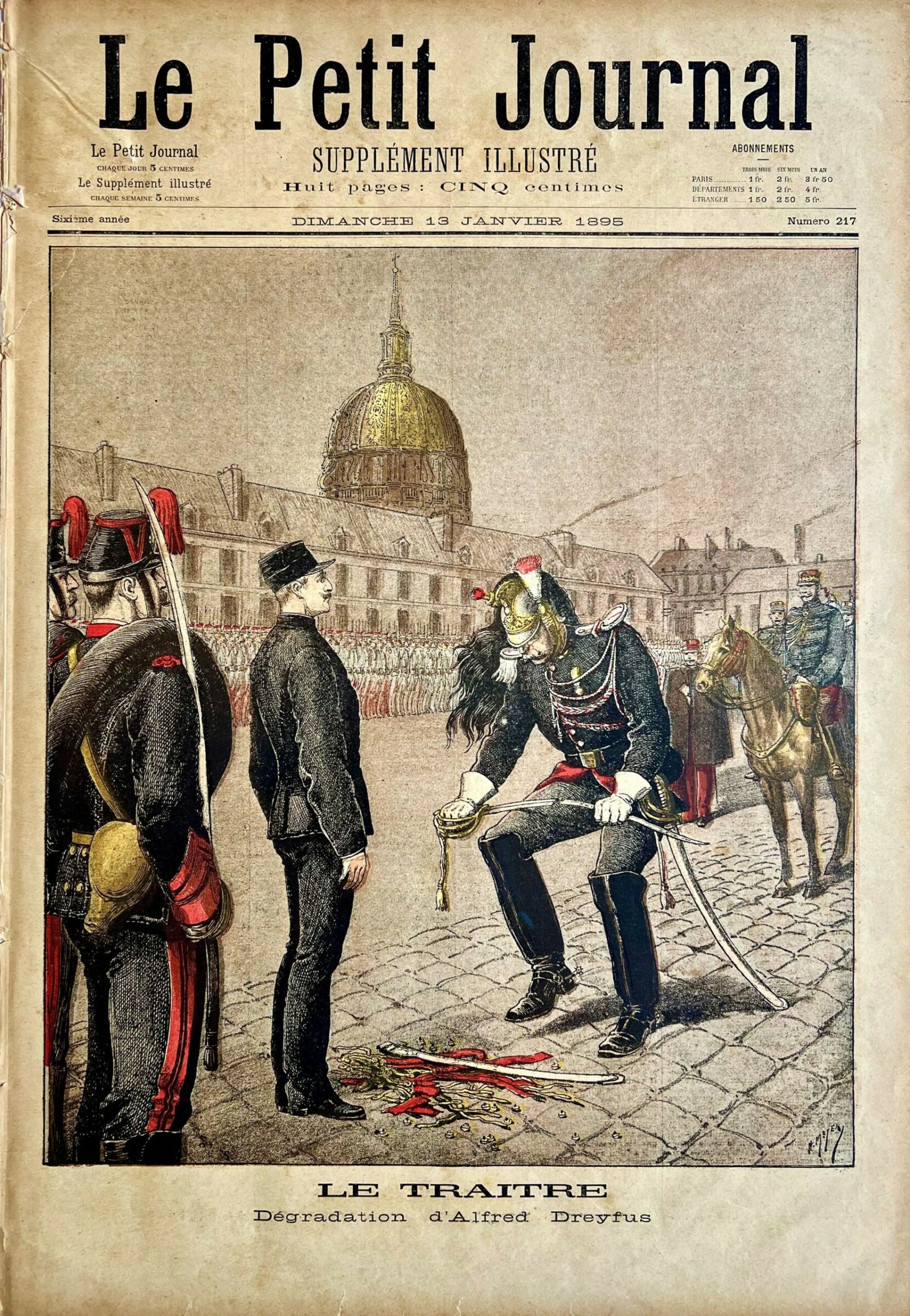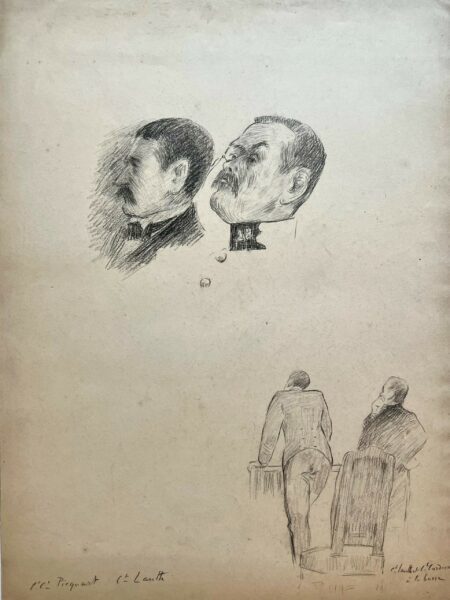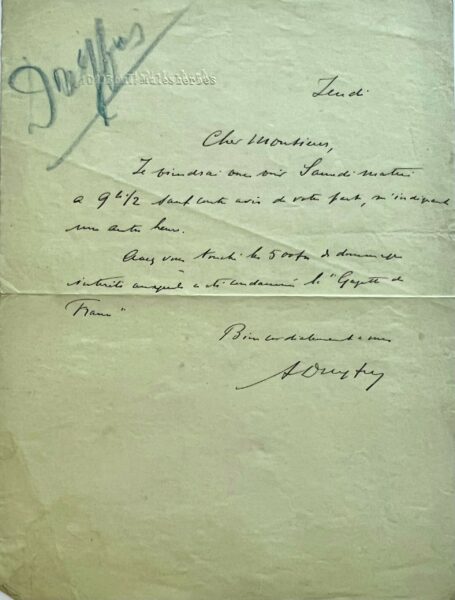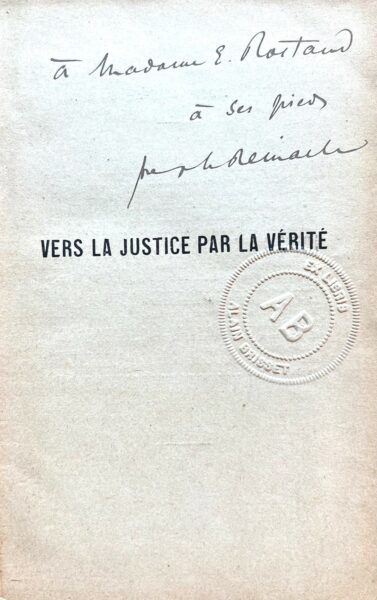[DREYFUS, ALFRED. (1859-1935).] French-Jewish artillery captain unjustly accused, tried and convicted of treason in 1894. A complete copy of Le Petit Journal, the illustrated supplement of Paris’ popular and ardently anti-Dreyfus newspaper, featuring Dreyfus’ military degradation in the courtyard of the École Militaire in Paris. 16pp. Folio. Paris, January 13, 1895.
In 1894, the French army accused Dreyfus of proffering military secrets to the Germans, convicting him of treason on December 22nd. His first punishment was to be stripped of his rank. “The ‘execution parade’ was scheduled, by government decree, for Saturday, January 5, at 8:45 a.m. in the principal courtyard of the École Militaire on Place Fontenoy. Each regiment of the Paris garrison sent two units, one of soldiers in arms, the other of recruits. Diplomats and journalists were invited to view the spectacle… Since the public was not admitted, several thousand of the curious assembled outside the gates, along the trellis, or took to the roofs. The adjacent streets were jammed,” (The Affair: The Case of Alfred Dreyfus, Bredin). In all, 300 journalists, 5000 troops, and thousands of spectators gathered to watch the humiliating 10-minute ceremonial degradation of an innocent officer and patriot. The ordeal ended with Dreyfus shouting, “I am innocent! Vive la France!” proclamations that angered the spellbound crowd, who cried out, “Death to the Jew!” The cover shows General Darras, mounted on horseback, and depicts the very moment when Sergeant-Major Bouxin, a member of the Republican Guard, breaks Dreyfus’ sword over his knee. Dreyfus, stripped of his military insignias, buttons and epaulets, stares resolutely ahead at attention.
On February 22, Dreyfus was exiled to French Guiana to begin a term of life imprisonment in solitary confinement. He languished for years in horrible conditions while a vast network of anti-Semitic French journals regularly circulated rumors and lies about him. Only his family and a few close friends maintained his innocence. “That the press played a decisive role first in sending Dreyfus to prison (by exploiting anti-Semitism and a hatred for traitors inherited from the War of 1870), then in the revision of the trial (by helping to reveal the shameful conditions of his conviction and the crimes committed against the deportee of Devil’s Island) is beyond doubt… It is true that during those years the principal public forum shifted from Parliament to the press,” (ibid.). Cut off from all communication, Dreyfus was unaware of his supporters’ valiant efforts to prove that his indictment was the work of anti-Semitic army officials. Eventually, Dreyfus’ supporters succeeded in exposing one of the worst injustices France and the world had ever seen. The Affair’s significance is so far-reaching that the human rights movement, the beginnings of Zionism, and the French separation of church and state can all claim to have been born during this dark chapter in French history.
Some wear; otherwise fine.





